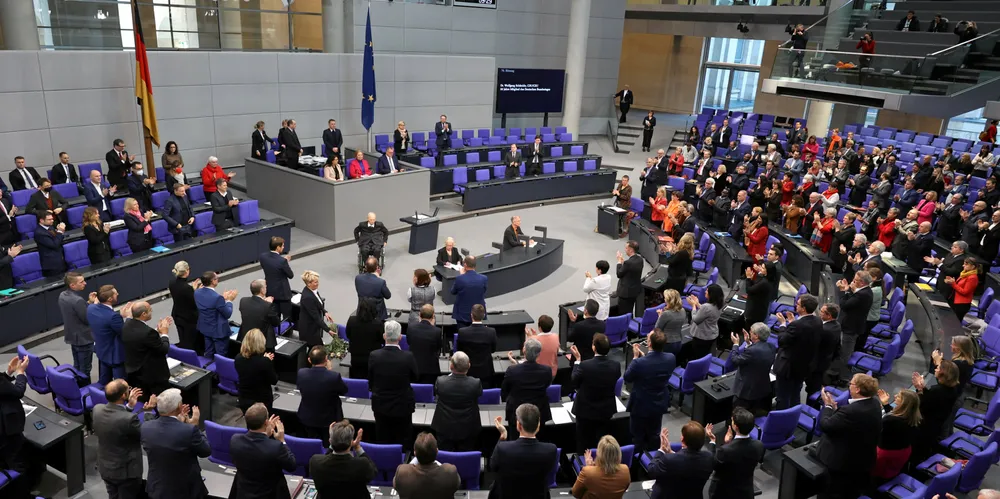Final German OK for 'revenue skimming' green power raid that sector fears will hurt growth
Measure to help consumers by collecting 'excessive returns' from generation pass lower house as renewables groups voice concerns

Germany’s lower house of parliament, the Bundestag, has approved legislation that includes a skimming of ‘excessive’ revenues from green energy generation which in part will pay for massive government subsidies to soaring consumer power bills.
The measure is included in the ‘power price brake’ law that from next year on through a complicated mechanism will limit household consumer payments for electricity to €0.40/kWh for 80% of their average consumption, with much more generous power price caps in effect for industry.
To finance this, together with a similar ‘gas price brake’ law, the government has set aside the enormous amount of €200bn ($213bn) in a kind of shadow budget that stands on shaky constitutional grounds, making Berlin all the more keen on gaining extra revenue from the power sector.
The energy price brakes form part of Social Democratic Chancellor Olaf Scholz’s promise from earlier this year to German citizens that "nobody will have to walk alone" during the energy crisis triggered by Russian gas curtailments in the wake of the Ukraine war.
Revenue skimming will last until at least June next year, with the option to extend the ordinance until the end of April 2024. The government after complaints by the power sector refrained from an idea to retroactively hit revenues back to September, setting a 1 December 2022 start date in the final version.
The parties of Scholz’s three-way coalition also included a measure to raise price caps at renewables tenders by 10% to account for inflation (and 25% in the case of innovation auctions), but the green power sector still fears the now approved revenue skimming will put renewables at a disadvantage with fossil energies and harm investments.
Simone Peter, president of Germany’s renewable energy federation also said “the [revenue] skimming mechanism remains complex and fraught with legal issues.
“There is no clear time limit.”
The sector complained that the revenue skimming hits the industry at a time of rising costs and during a delicate global economic environment.
Germany’s upper house of parliament, the Bundesrat, today will also discuss the legislation, but its approval is not necessary for it to come into force.
(Copyright)Germany's revenue skimming mechanism
Companies have two options for determining the proceeds to be skimmed off – either they disclose their long-term PPA contracts or the amount is calculated using monthly average prices on the spot and futures markets.
Unlike an EU proposal to charge a levy on revenues for spot-market prices above €180/MWh, the complicated German proposal introduces hundreds of tailor-made thresholds, with different rules for various renewable energy technologies.
In onshore wind and solar, operators have to give up 90% of any price achieved in spot markets - using a monthly price average that exceeds a minimum feed-in tariff (FIT) granted either through a tender or as a fixed FIT for older installations - plus a €30/MWh buffer.
If a wind farm, for example, has won a tender at a price of €58/MWh, any price achieved on wholesale markets above €88/MWh would be taxed at a 90% rate. If the average monthly spot market price were to be €200/MWh, then the operator would have to give 90% of the 'excess revenue' of €112/MWh to the state.
As well as the €30/MWh, another 6% of the monthly value is added to the buffer. For offshore wind, a minimum revenue of €100/MWh plus the €30/MWh remains untouched by revenue skimming.
A different rule applies for PPAs. German power generators have the option to either receive a FIT directly or market their power on wholesale power markets using the so-called 'market premium' model.